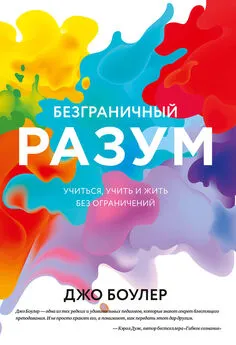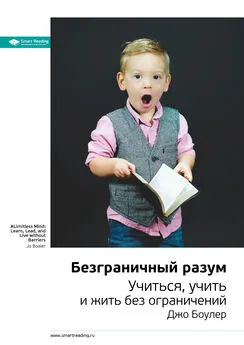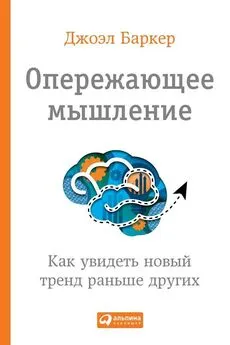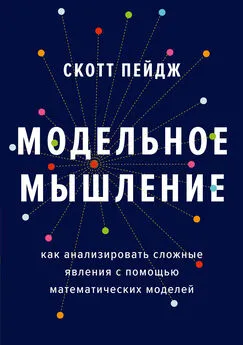Джо Боулер - Математическое мышление
- Название:Математическое мышление
- Автор:
- Жанр:
- Издательство:Манн, Иванов и Фербер
- Год:2019
- Город:Москва
- ISBN:9785001008910
- Рейтинг:
- Избранное:Добавить в избранное
-
Отзывы:
-
Ваша оценка:
Джо Боулер - Математическое мышление краткое содержание
Математическое мышление - читать онлайн бесплатно ознакомительный отрывок
Интервал:
Закладка:
Galloway M. K., Pope D. Hazardous homework? The relationship between homework, goal orientation, and well-being in adolescence // Encounter: Education for Meaning and Social Justice. 2007. Vol. 20 (4). Pp. 25–31.
Girl Scouts of the USA with the National Center for Women & Information Technology (NCWIT). Evaluating promising practices in informal science, technology, engineering and mathematics (STEM) education for girls, 2008 // http://www.ncwit.org/sites/default/files/legacy/pdf/NCWIT-GSUSAPhaseIIIReport_FINAL.pdf.
Good C., Rattan A., Dweck C. S. Why do women opt out? Sense of belonging and women’s representation in mathematics // Journal of Personality and Social Psychology. 2012. Vol. 102 (4). Pp. 700–717.
Gray E., Tall D. Duality, ambiguity, and flexibility: A “proceptual” view of simple arithmetic // Journal for Research in Mathematics Education. 1994. Vol. 25 (2). Pp. 116–140.
Gunderson E. A., Gripshover S. J., Romero C. et al. Parent praise to 1–3 year-olds predicts children’s motivational frameworks 5 years later // Child Development. 2013. Vol. 84 (5). Pp. 1526–1541.
Gutstein E., Lipman P., Hernandez P., de los Reyes R. Culturally relevant mathematics teaching in a Mexican American context // Journal for Research in Mathematic Education. 1997. Vol. 28 (6). Pp. 709–737.
Haack D. Disequilibrium (I): Real learning is disruptive. A Glass Darkly (blog). 2011, January 31 // http://blog4critique.blogspot.com/2011/01/disequilibrium-i-real-learning-is.html.
Hersh R. What is mathematics, really? Oxford, UK: Oxford University Press, 1999.
Horn I. S. Learning on the job: A situated account of teacher learning in high school mathematics departments // Cognition and Instruction. 2005. Vol. 23 (2). Pp. 207–236.
Humphreys C., Parker R. Making number talks matter: Developing mathematical practices and deepening understanding, grades 4–10. Portland, ME: Stenhouse Publishers, 2015.
Jacob W. [Math Acceleration]. Personal communication. 2015.
Jones M. G., Howe A., Rua M. J. Gender differences in students’ experiences, interests, and attitudes toward science and scientists // Science Education. 2000. Vol. 84. Pp. 180–192.
Karni A., Meyer G., Rey-Hipolito C. et al. The acquisition of skilled motor performance: Fast and slow experience-driven changes in primary motor cortex // PNAS. 1998. Vol. 95 (3). Pp. 861–868.
Khan S. The one world schoolhouse: Education reimagined. New York: Twelve, 2012.
Kitsantas A., Cheema J., Ware W. H. Mathematics achievement: The role of homework and self-efficacy beliefs // Journal of Advanced Academics. 2011. Vol. 22 (2). Pp. 310–339.
Klarreich E. Meet the first woman to win math’s most prestigious prize // Quanta Magazine. 2014, August 13 // http://www.wired.com/2014/08/maryam-mirzakhani-fields-medal.
Kohn A. Punished by rewards: The trouble with gold stars, incentive plans, A’s, praise, and other bribes. New York: Mariner Books, 1999.
Kohn A. The schools our children deserve: Moving beyond traditional classrooms and tougher standards. New York: Mariner Books, 2000.
Kohn A. Teachers who have stopped assigning homework (blog). 2008, September // http://www.alfiekohn.org/blogs/teachers-stopped-assigning-homework.
Kohn A. The case against grades. 2011, November // http://www.alfiekohn.org/article/case-grades.
Koonlaba A. E. 3 visual artists — and tricks — for integrating the arts into core subjects // Education Week Teacher. 2015, February 24 // http://www.edweek.org/tm/articles/2015/02/24/3-visual-artists-and-tricks-for-integrating-the-arts.html.
Langer-Osuna J. How Brianna became bossy and Kofi came out smart: Understanding the differentially mediated identity and engagement of two group leaders in a project-based mathematics classroom // Canadian Journal for Science, Mathematics, and Technology Education. 2011. Vol. 11 (3). Pp. 207–225.
Lawyers’ Committee for Civil Rights of the San Francisco Bay Area. Held back: Addressing misplacement of 9th grade students in Bay Area school math classes. 2013, January // www.lccr.com.
Lee D. N. Black girls serving as their own role models in STEM // Scientific American. 2014, November 25 // http://blogs.scientificamerican.com/urban-scientist/2014/11/25/black-girls-serving-as-their-own-role-models-in-stem.
Lee J. Racial and ethnic achievement gap trends: Reversing the progress toward equity? // Educational Researcher. 2002. Vol. 31 (1). Pp. 3–12.
Lemos M. S., Veríssimo L. The relationships between intrinsic motivation, extrinsic motivation, and achievement, along elementary school // Procedia — Social and Behavioral Sciences. 2014. Vol. 112. Pp. 930–938.
Leslie S.-J., Cimpian A., Meyer M., Freeland E. Expectations of brilliance underlie gender distributions across academic disciplines // Science. 2015. Vol. 347 (6219). Pp. 262–265.
Lupton T., Pratt S., Richardson K. Exploring long division through division quilts // Centroid. 2014. Vol. 40 (1). Pp. 3–8.
Maguire E., Woollett K., Spiers H. London taxi drivers and bus drivers: A structural MRI and neuropsychological analysis // Hippocampus. 2006. Vol. 16 (12). Pp. 1091–1101.
Mangels J. A., Butterfield B., Lamb J. et al. Why do beliefs about intelligence influence learning success? A social cognitive neuroscience model // Social Cognitive and Affective Neuroscience. 2006. Vol. 1 (2). Pp. 75–86.
Mathematics Teaching and Learning to Teach, University of Michigan. SeanNumbers-Ofala video [Online]. 2010 // http://deepblue.lib.umich.edu/handle/2027.42/65013.
McDermott R. P. The acquisition of a child by a learning disability // S. Chaiklin, J. Lave, eds. Understanding practice: Perspectives on activity and context. Cambridge, UK: Cambridge University Press, 1993. Pp. 269–305.
McKnight C., Crosswhite F. J., Dossey J. A. et al. The underachieving curriculum — Assessing US school mathematics from an international perspective. Champaign, IL: Stipes Publishing, 1987.
Mikki J. Students’ homework and TIMSS 2003 mathematics results. International Conference, Teaching Mathematics Retrospective and Perspective, 2006.
Moser J., Schroder H. S., Heeter C. et al. Mind your errors: Evidence for a neural mechanism linking growth mindset to adaptive post error adjustments // Psychological Science. 2011. Vol. 22. Pp. 1484–1489.
Moses R., Cobb J. C. Radical equations: Math, literacy and civil rights. Boston: Beacon Press, 2001.
Mueller C. M., Dweck C. S. Praise for intelligence can undermine children’s motivation and performance // Journal of Personality and Social Psychology. 1998. Vol. 75 (1). Pp. 33–52.
Murphy M. C., Garcia J. A., Zirkel S. The role of faculty mindsets in women’s performance and participation in STEM (in prep).
Nasir N. S., Cabana C., Shreve B. et al., eds. Mathematics for equity: A framework for successful practice. New York: Teachers College Press, 2014.
Noguchi S. Palo Alto math teachers oppose requiring Algebra II to graduate. San Jose Mercury News, 2012, January 14 // http://www.mercurynews.com/ci_19748978.
Organisation for Economic Co-operation and Development (OECD). Lessons from PISA 2012 for the United States, strong performers and successful reformers in education. Paris: OECD, 2013.
Organisation for Economic Co-operation and Development (OECD). The ABC of gender equality in education: Aptitude, behaviour, confidence. A Program for International Student Assessment (PISA) Report. Paris: OECD Publishing, 2015.
Paek P., Foster D. Improved mathematical teaching practices and student learning using complex performance assessment tasks. National Council on Measurement in Education (NCME), Vancouver, BC, Canada, 2012.
Park J., Brannon E. Training the approximate number system improves math proficiency. Association for Psychological Science, 1–7. 2013.
Parrish S. Number talks: Helping children build mental math and computation strategies, grades K–5, updated with Common Core Connections. Sausalito, CA: Math Solutions, 2014.
Piaget J. The child’s construction of reality. London: Routledge & Kegan Paul, 1958.
Piaget J. Piaget’s theory // P. H. Mussen, ed. Carmichael’s manual of child psychology. New York: Wiley, 1970.
Picciotto H. Lab gear activities for Algebra I. Mountain View, CA: Creative Publications, 1995.
Program for International Student Assessment (PISA). PISA 2012 results in focus. What 15-year-olds know and what they can do with what they know. Paris, France: OECD, 2012.
Program for International Student Assessment (PISA). Does homework perpetuate inequities in education? PISA in Focus 46, 2015 // http://www.oecd-ilibrary.org/education/does-homework-perpetuate-inequities-in-education_5jxrhqhtx2xt-en;jsessionid=f7tsdsj7up8t.x-oecd-live-02.
Pulfrey C., Buchs C., Butera F. Why grades engender performance-avoidance goals: The mediating role of autonomous motivation // Journal of Educational Psychology. 2011. Vol. 103 (3). Pp. 683–700 // http://www.researchgate.net/profile/Fabrizio_Butera/publication/232450947_Why_grades_engender_performance-avoidance_goals_The_mediating_role_of_autonomous_motivation/links/02bfe50ed4ebfd0670000000.pdf.
Reeves D. B. The learning leader: How to focus school improvement for better results. Alexandria, VA: Association for Supervision & Curriculum Development, 2006.
Romero C. Coping with challenges during middle school: The role of implicit theories of emotion (Doctoral dissertation). Stanford, CA: Stanford University, 2013 // http://purl.stanford.edu/ft278nx7911.
Rose H., Betts J. R. The effect of high school courses on earnings // Review of Economics and Statistics. 2004. Vol. 86 (2). Pp. 497–513.
Schmidt W. H., McKnight C. C., Cogan L. S. et al. Facing the consequences: Using TIMSS for a closer look at US mathematics and science education. Dordrecht, Netherlands: Kluwer Academic Publishers, 2002.
Schmidt W. H., McKnight C. C., Raizen S. A. A splintered vision: An investigation of US science and mathematics education. Dordrecht, Netherlands: Kluwer Academic Publishers, 1997.
Schwartz D., Bransford J. A time for telling // Cognition and Instruction. 1998. Vol. 16 (4). Pp. 475–522.
Schwartz L. A mathematician grappling with his century. Basel, Switzerland: Birkhäuser, 2001.
Seeley C. Faster isn’t smarter: Messages about math, teaching, and learning in the 21st century. Sausalito, CA: Math Solutions, 2009.
Seeley C. Smarter than we think: More messages about math, teaching, and learning in the 21st century. Sausalito, CA: Math Solutions, 2014.
Selling S. K. Learning to represent, representing to learn // Journal of Mathematical Behavior. 2015.
Silva E., White T. Pathways to improvement: Using psychological strategies to help college students’ master developmental math. Stanford, CA: Carnegie Foundation for the Advancement of Teaching, 2013.
Silver E. A. On mathematical problem posing // For the Learning of Mathematics. 1994. Vol. 14 (1). Pp. 19–28.
Sims P. Daring to stumble on the road to discovery // New York Times. 2011, August 6 // http://www.nytimes.com/2011/08/07/jobs/07pre.html?_r=0.
Solomon Y. Not belonging? What makes a functional learner identity in undergraduate mathematics? // Studies in Higher Education. 2007. Vol. 32 (1). Pp. 79–96.
Stanford Center for Professional Development. How to learn math: For teachers and parents // http://scpd.stanford.edu/instanford/how-to-learn-math.jsp.
Stanford Online Lagunita. How to learn math: For students. Stanford University, 2014 // https://lagunita.stanford.edu/courses/Education/EDUC115-S/Spring2014/about.
Steele C. Whistling Vivaldi: How stereotypes affect us and what we can do. New York: Norton, 2011.
Читать дальшеИнтервал:
Закладка:
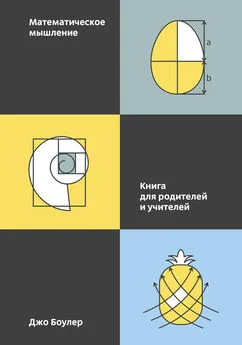

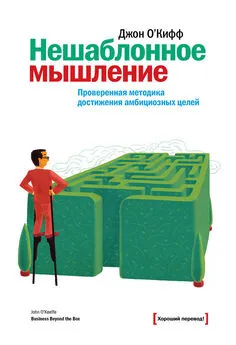
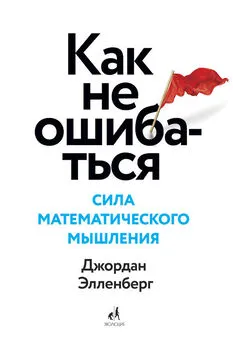
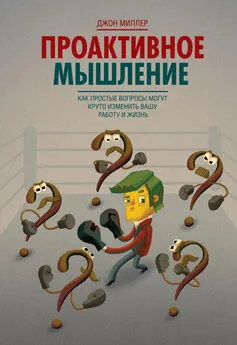
![Джоан Дидион - Год магического мышления [litres с оптимизированной обложкой]](/books/1145878/dzhoan-didion-god-magicheskogo-myshleniya-litres-s-op.webp)
